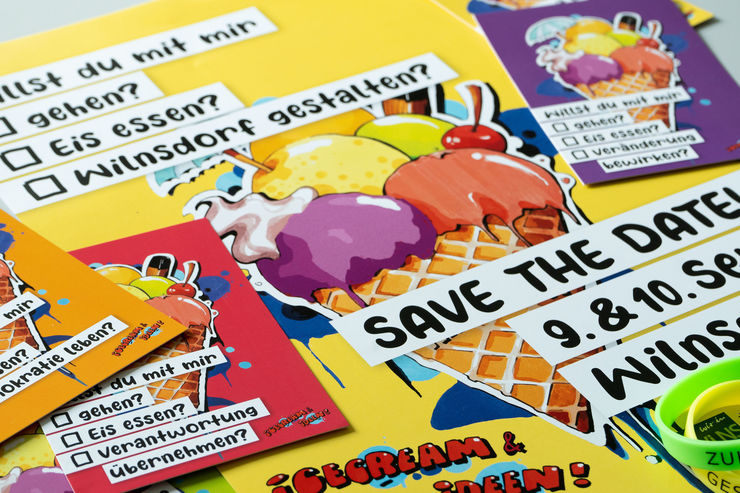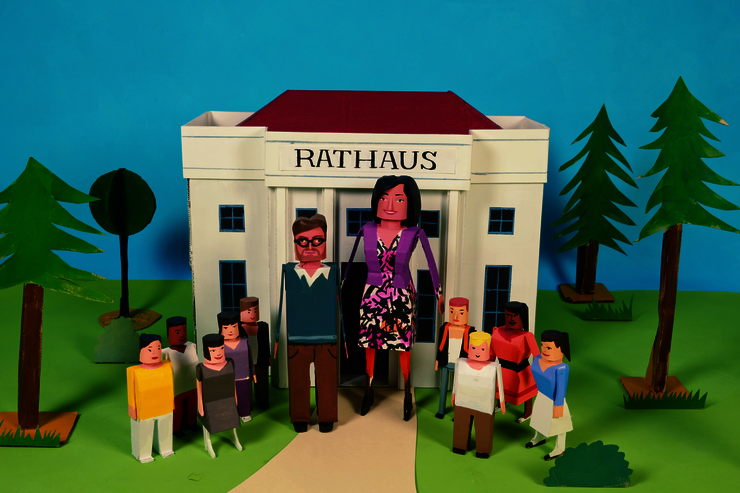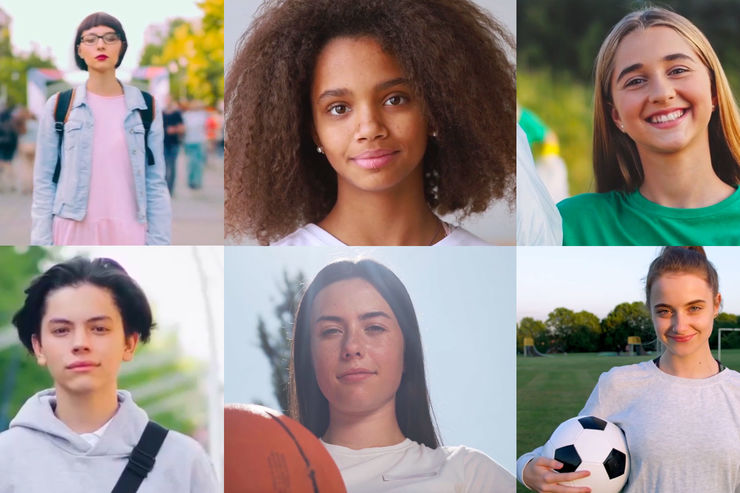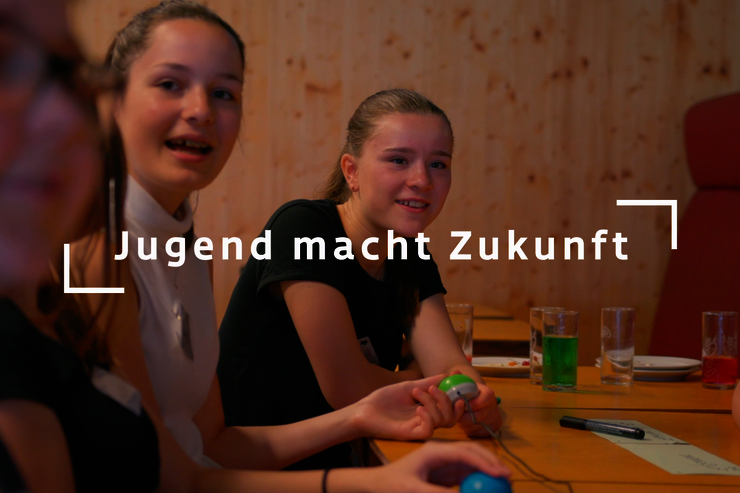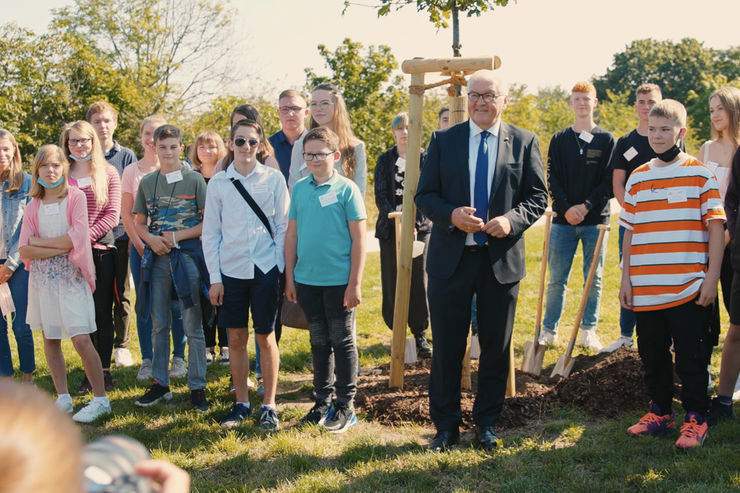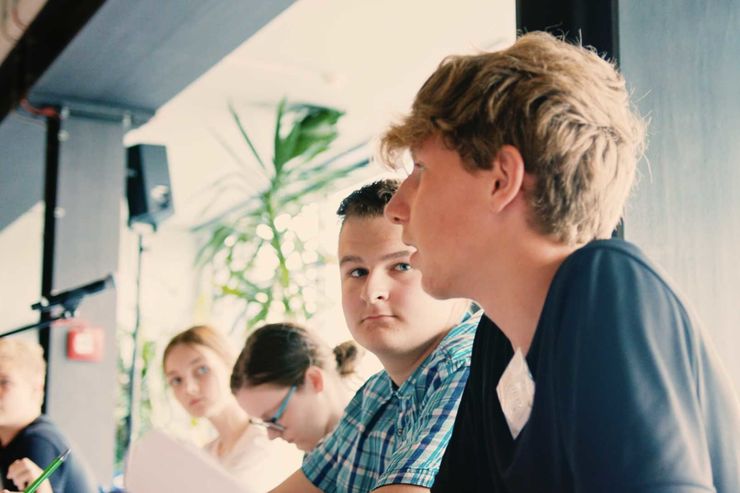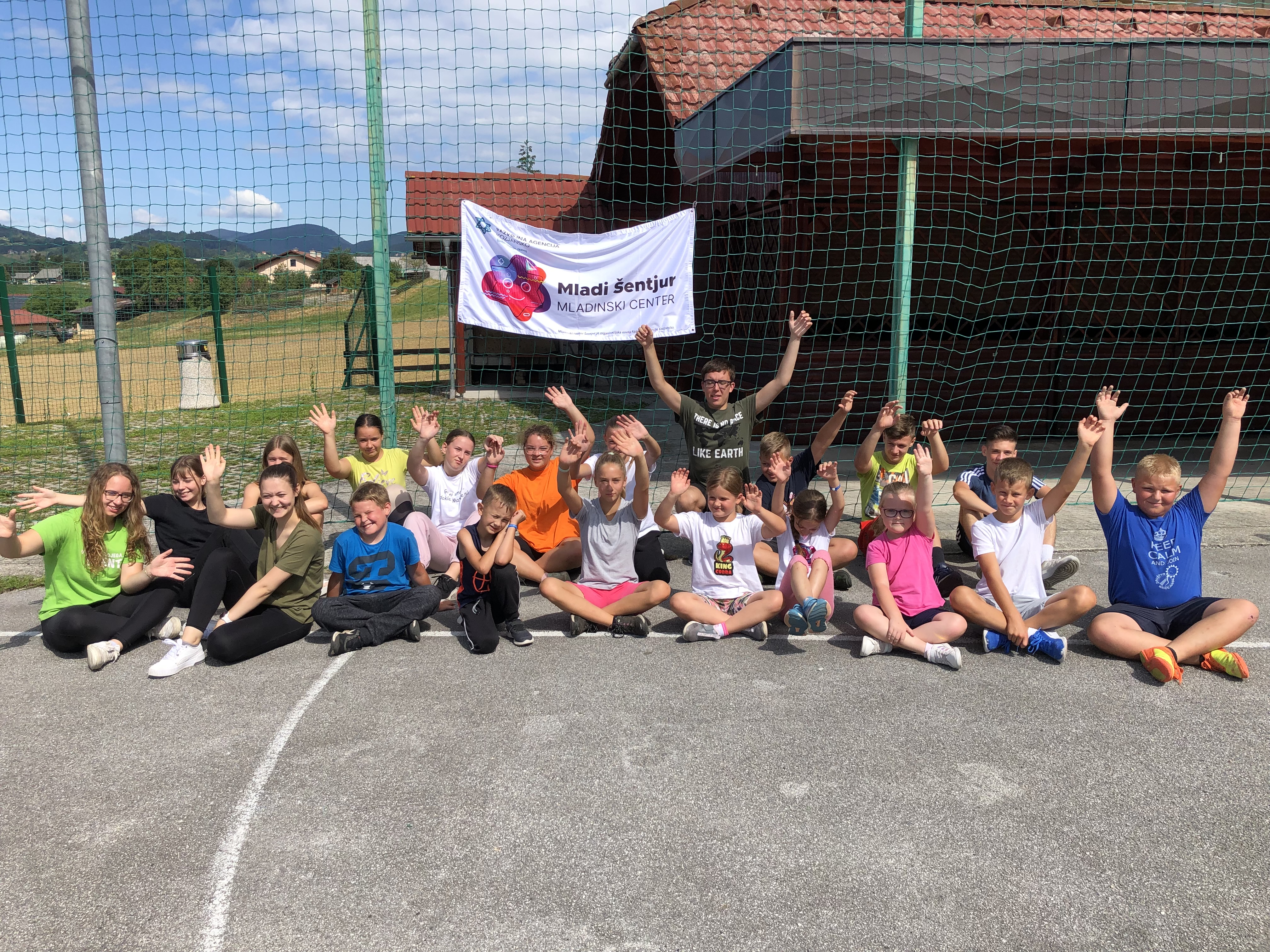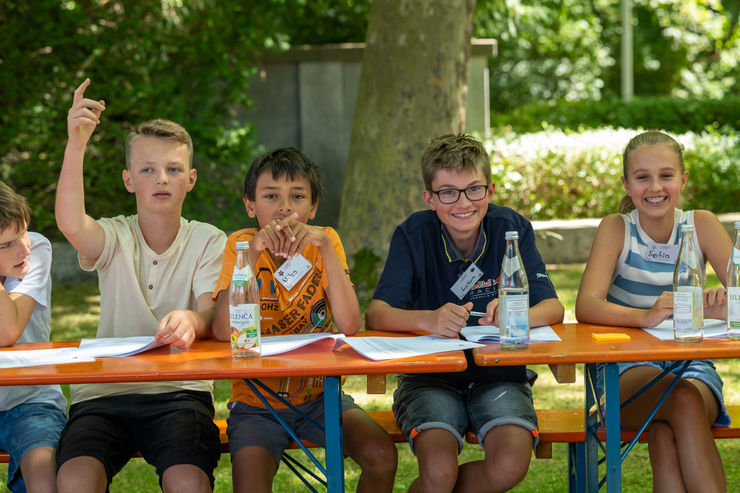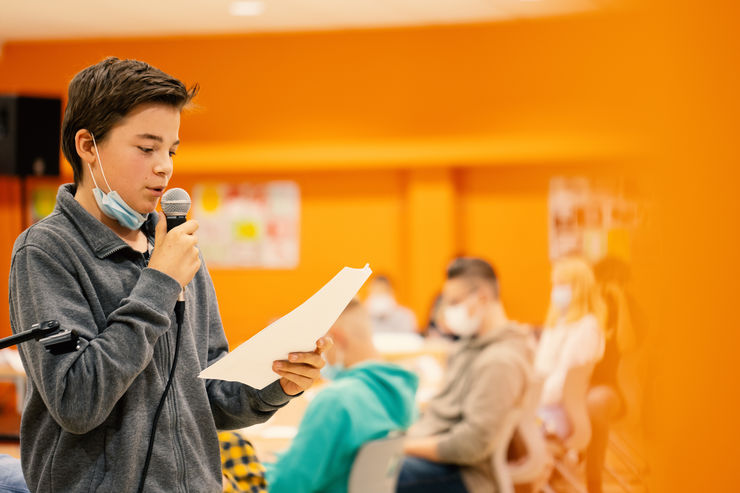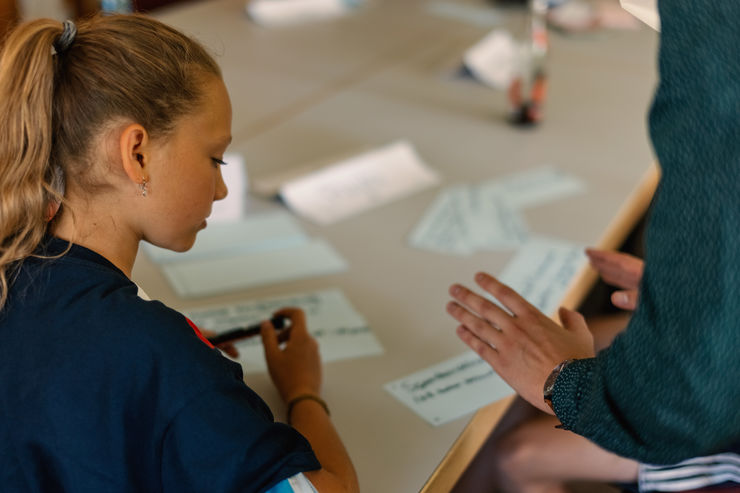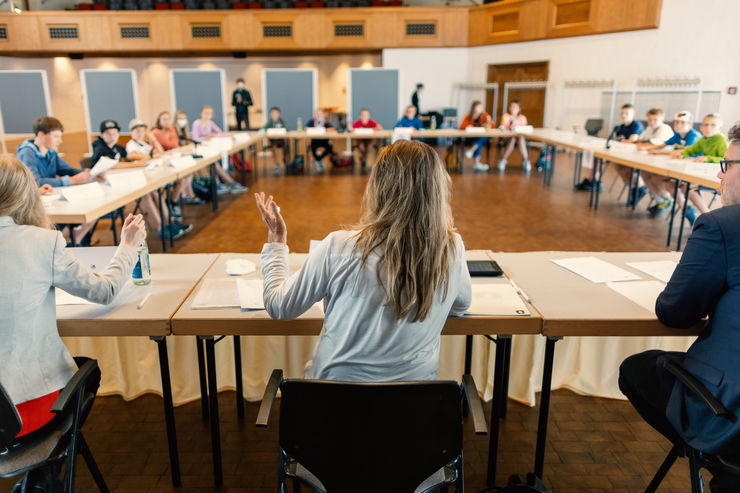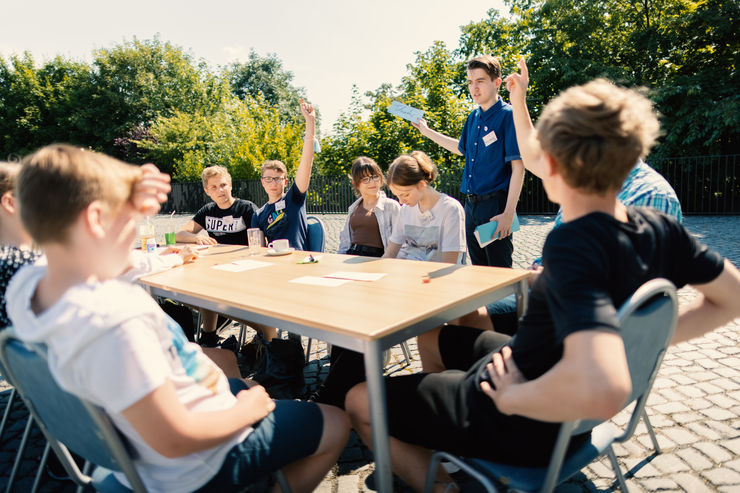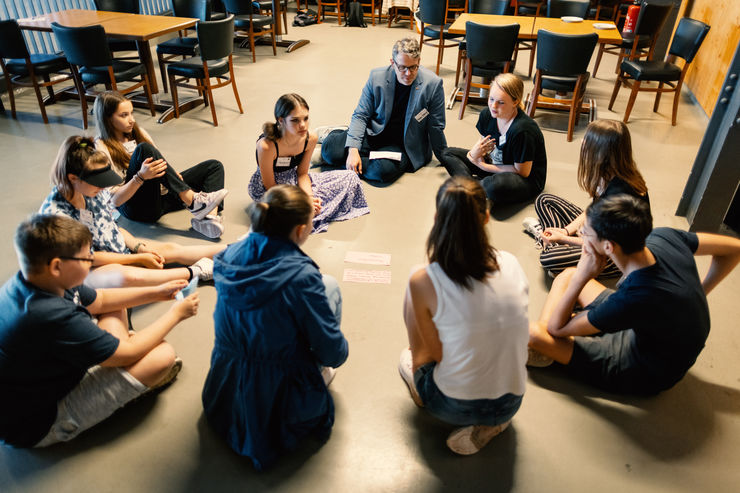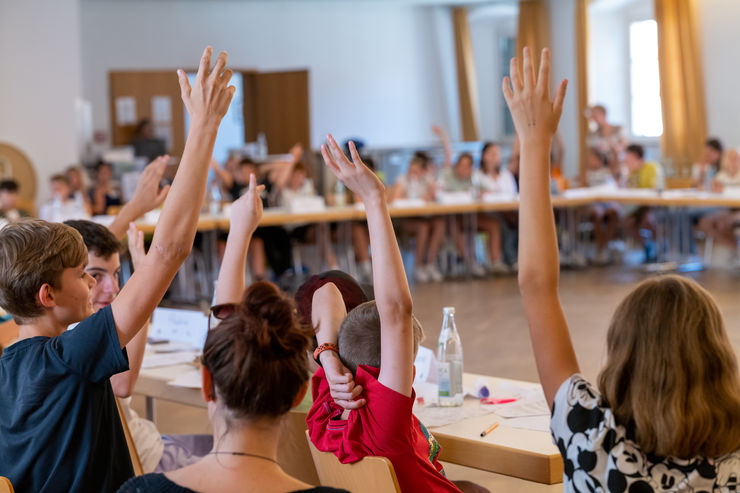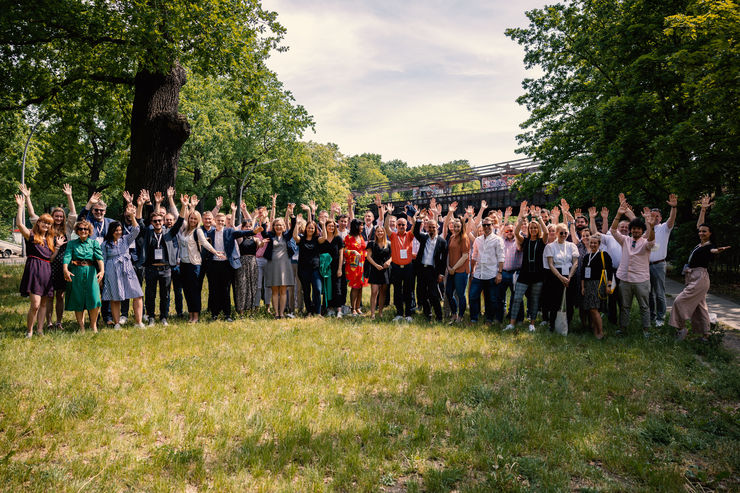If we want young people to be engaged in the community, we need to have constant calls for their involvement and supportive environment.
Mrs. Zmaher, who had the idea for the project “Rise and Shine”?
When we learned about the Civic Europe Call for Ideas (change starts locally) we gathered a group of young people we were working with at the time and brainstormed together. We took into consideration the environment we work in, our capacities, and our resources. As our main purpose is to create a supportive environment for young people for their personal and professional development and to engage them in the local community, the project “Rise & Shine” was a “natural” response to the call.
Our challenge was to engage youth in community development. We wanted to give them a chance to take part in solving community challenges and empower them to propose solutions on current local challenges, as well as create and implement their projects. Our aim was also to show youth that their ideas and projects matter and that they play an important role in community development. Our main target group was teenagers and young people from 13 to 29 years old, scattered in 13 rural settlements of the Municipality of Šentjur.
May I ask what your personal background is?
I have a bachelor’s degree in economics, international trade. I entered the faculty with the idea that I want to be a businesswoman and travel around the world. During the studies, my world happened. I lived for one year in the United States and took part in many youth service projects in Europe and on other continents. I grew up through service and community development mind (teach how to fish). After the studies I got involved in youth work in my hometown and funded local NGO that worked with children and youth.
I got noticed by local Development agency and invited to work on rural development (tourism & entrepreneurship) but afternoons I continued to work with youth and kind of naturally I brought all the youth work in the Development agency. The Agency received status of youth center from the Slovenian youth office. That was in 2006. 17 years of training by youth as nothing can be taken for granted, every day is different, and many unexpected things happen in between. We are public institute but nevertheless we must find part of the funds on the market and apply to different national and EU call for proposals. I will be 50 this year.
Was it difficult to establish the project?
Our main challenge was how to reach young people to be interested in taking part, and how to present the project as their opportunity and chance to benefit through contribution to the community. A bit of the challenge was also the period in which the project was implemented (covid restrictions and the fear of live meetings). Our Municipality is very scattered (13 rural settlements) so getting young people in one place was a challenge, taking into consideration that during the week they were either away for studies or in schools out of the Municipality, and after school, they also had other obligations. But in this case, the zoom was very convenient as we were able to reach youth during the week at a time that was convenient for them.
Our expectation was that the same young people would take part in all phases of the project (from training, giving ideas, proposing projects, and implementing projects) but that was not the case. Some of them were only involved in training, some only gave ideas or proposed projects and then the others implemented the projects. Working with people always demands a good portion of flexibility and being ready that things will not work as planned. And we are very grateful to the Civic Europe team that they understood that well and supported us in those endeavors. We had a slow start but with persistence and continuation, we managed to encourage and support young people to engage and take part in different phases of the project. 10 youth projects were implemented, and more than 200 young people took part either as active participants or the ones receiving service from the activities.
Where do you get the money for the project from?
We were lucky winners of the Civic Europe 2021 Idea Challenge. Among approximately 200 projects from Central, Eastern and Southern Europe they chose 18 projects that according to them would strengthen civic engagement as well as social and political participation to tackle societal challenges at the local level. We received 35.000 €.
Civic Europe is an incubator for locally rooted civic initiatives, organizations, and individuals in Central, Eastern and Southern Europe realized by commit by MitOst and Sofia Platform Foundation, funded by Stiftung Mercator.
Are politicians involved in the project?
There were no politicians directly involved. Our Youth center Šentjur is an organizational unit of the Development agency Kozjansko. We do many local projects and have direct and good communication with Municipality, the mayor, as well as the Municipal administration. Our projects were a small-scale size and therefore they did not need the consent or recognition of the local politicians. Nevertheless, we cooperated with local communities and NGOs and through those organizations we met local politicians but in a different role.
Do participants find a new form of engaging in politics?
I don`t think so. Except volunteering in the community and voting as we developed a voting platform through which young people and the community could give vote for the preferred idea or/and project.
Who was allowed to vote online which of the different ideas should be realized – only young people or also adult citizens of Šentjur?
We had two different votings. Voting for the three best ideas and voting for the projects. The whole community from the age of 13 and up could vote for the idea they like the most. But for the projects only youth from 13 to 29 years old could vote.
Which plans developed by the kids and youths were actually implemented?
There were suggestions for 11 projects and 10 of them were implemented:
- Placing geocaches in the Municipality to attract tourists and make local heritage more recognizable.
- School of Environmental Protection – two sets of three-day activities (summer and autumn) for children who wanted to learn more about environmental protection and spend their holidays actively in a fun way.
- Teenage week - four days of activities for teenagers to socialize, connect with peers, and gain new skills.
- Be-You - young girl offered to the community (all generations) relaxation techniques, mindfulness, sonic bath, and yoga dance.
- Let`s improve our community - a group of young people restored old wine pressing machine that is decorating the center of the community (cultural heritage), painted their only bus station, and 80 pillars of their local playground fence.
- Camp for teenagers - three days camp for teenagers done by two students in one of the local communities.
- Let`s draw a party - drawing children`s floor (permanent) games in two communities.
- Young for younger - a team of young people went around the community (4 different towns) with workshops and games for children.
- Game board cafe – youth restored and cleaned local youth place where youth socialize, play board games, and other.
What are your plans for the future of the project?
We are preparing a program and proposal for schools to continue in the spirit of young people having a chance to learn, give and implement ideas/projects for the improvement of the community and surrounding they live in. And through that build up their connection with the community and develop ownership.
What can others learn from your project?
The importance of youth involvement in community building plans and social interaction, exchange of ideas, and joint actions towards the improvement of life in society. If we want young people to be engaged in the community, we need to have constant calls for their involvement and supportive environment where they can acquire different skills and mentoring. If they feel safe and recognize their own purpose in it, they are ready to engage and invest in it.
INFO Das Interview führte Hans Monath für die Gemeinnützige Hertie-Stiftung


